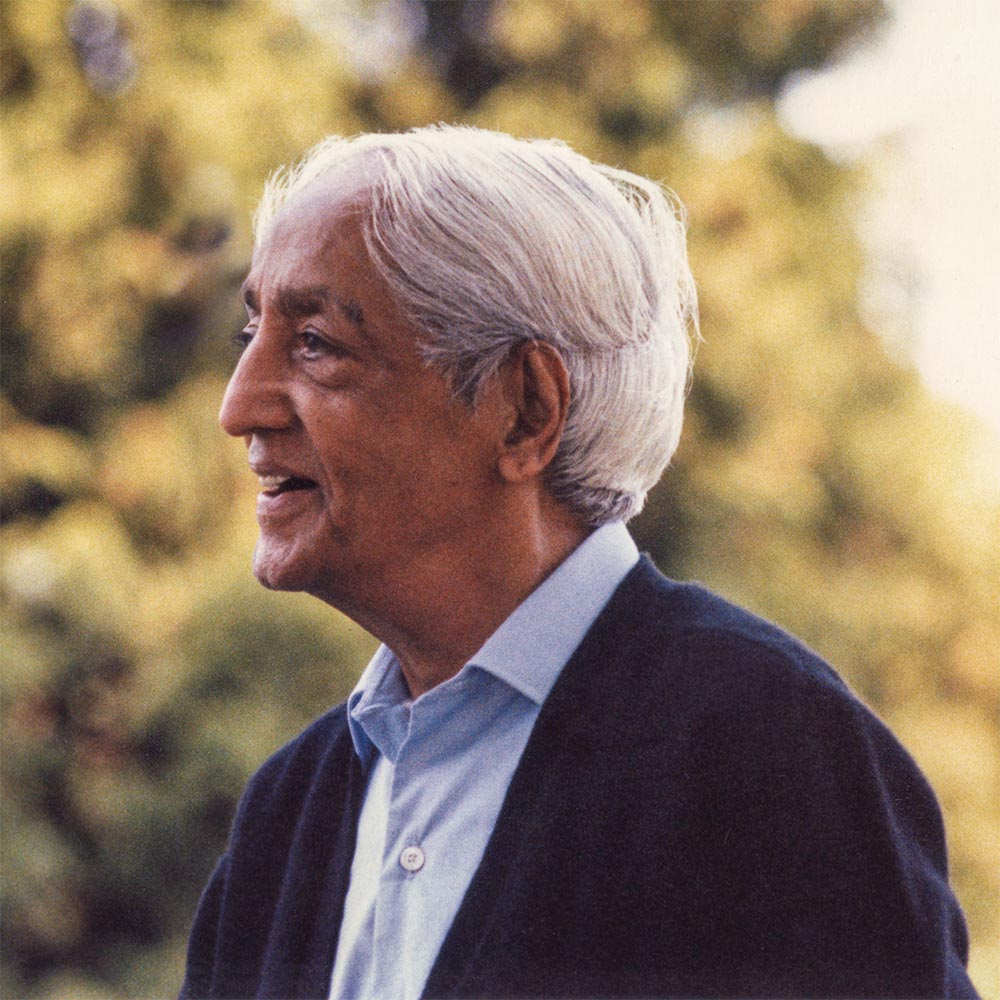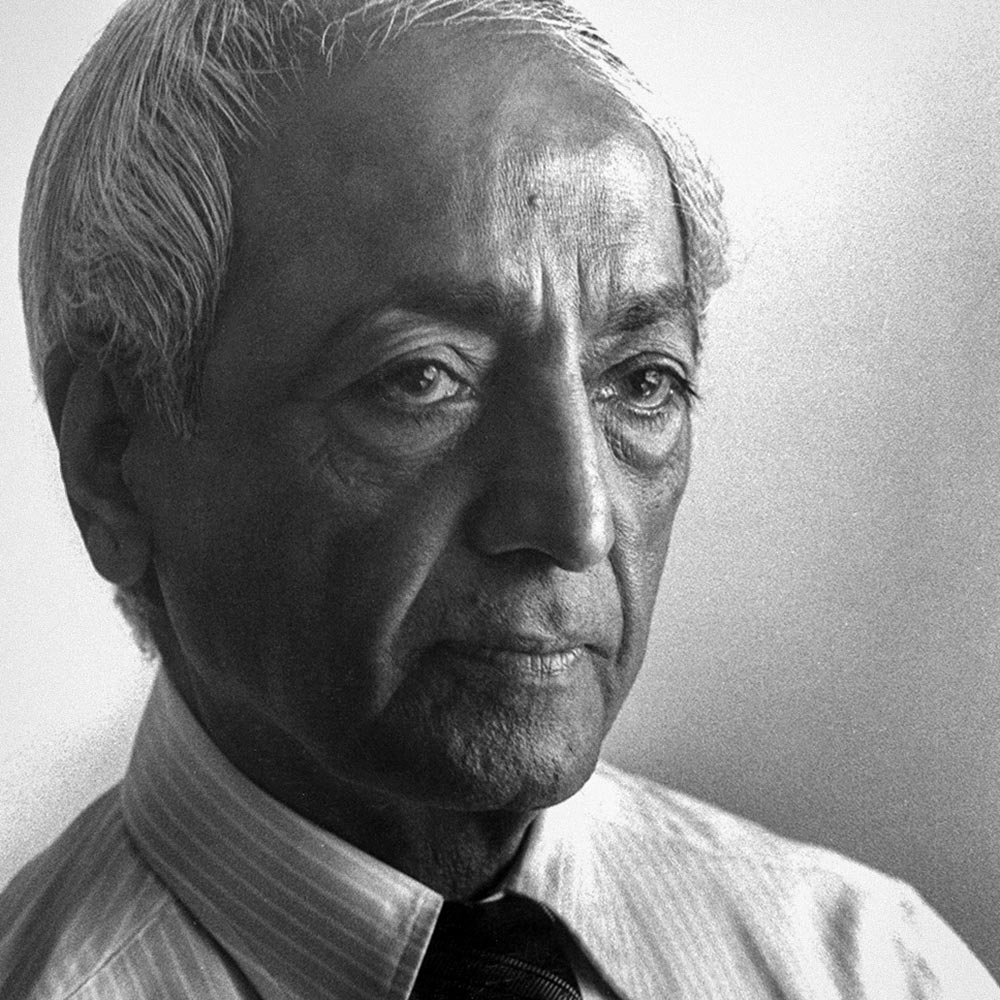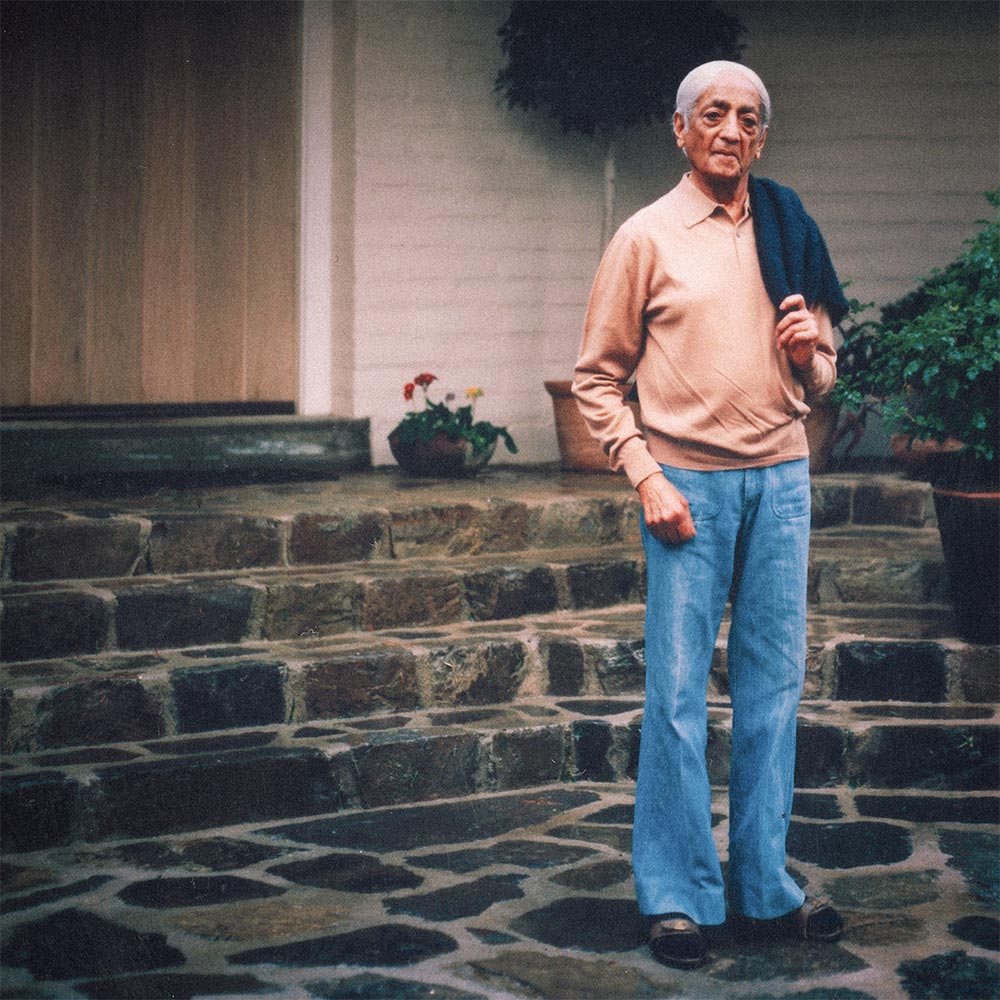A businessman is concentrated because he wants to amass wealth or power. When another concentrates in meditation, he also is after achievement and reward.
Krishnamurti, Commentaries on Living 2
Read More
Humility is not conscious clearing of the known; that is the vanity of achievement. Humility is complete not-knowing, which is dying.
Read More
In meditation there is absolutely no effort, no achievement, no thinking. The brain is quiet, not made quiet by will, by intention, by conclusion; it is quiet.
Krishnamurti, The Future Is Now
Read More
We use time as a means of achievement, tangible or psychological.
Krishnamurti, Commentaries on Living 1
Read More
Thought cannot know the timeless; it is not a further acquisition, a further achievement; there is no going towards it. It is a state of being in which thought, time, is not.
Krishnamurti, Commentaries on Living 1
Read More
Our imagination, our conditioning, our sense of achievement does not allow that which is being said to penetrate.
Krishnamurti, Life Ahead
Read More
The ‘I’ comes into being through the sense of achievement in various forms.
Krishnamurti, Life Ahead
Read More
It is still worldliness when you seek achievement, whether it be fame or the achievement of what one may call the ideal or God.
Krishnamurti, The Only Revolution
Read More
Meditation has no beginning and no end. There is no achievement and no failure, no gathering and no renunciation; it is a movement without finality and so beyond and above time and space.
Read More
Education must be devoid of the fears that arise from the craving for success and achievement.
Krishnamurti, Education and the Significance of Life
Read More
There is no such thing as an ideal because that is merely an achievement. Beauty is not an achievement; it is reality – now, not tomorrow.
Krishnamurti, The First and Last Freedom
Read More
The mind must voluntarily lose all accumulative impulse, the storing up of experience as a means to further experience and achievement.
Krishnamurti, Commentaries on Living 1
Read More
Any achievements, whether individual or collective, becomes a means to power. Success in this world, and the power that self-control and self-denial bring, are to be avoided, for both distort understanding.
Krishnamurti, Commentaries on Living 1
Read More
The mind is ever seeking a result, a way to some achievement. Mind is an instrument that has been put together; it is the fabric of time, and it can only think in terms of result, of achievement, of something to be gained or avoided.
Krishnamurti, Commentaries on Living 2
Read More
We are trained from childhood to acquire and achieve. The brain creates and demands this pattern of achievement in order to have physical security, but psychological security is not within the field of achievement.
Krishnamurti, Freedom From the Known
Read More
These quotes only touch on the many subjects Krishnamurti inquired into during his lifetime. His timeless and universal teachings can be explored using the Index of Topics where you will find texts, audio and video related on many themes. Another option is to browse our selection of curated articles or more short quotes. Krishnamurti’s reply when asked what lies at the heart of his teachings can be found here. Many Krishnamurti books are available, a selection of which can be explored here. To find out more about Krishnamurti’s life, please see our introduction and the biography. We also host a weekly podcast, and offer free downloads. Please visit our YouTube channel for hundreds of specially selected shorter clips. Below, you can learn more about Krishnamurti and our charity which he founded in 1968.

Who Was Krishnamurti?
J. Krishnamurti (1895-1986) is widely regarded as one of the greatest thinkers and religious teachers of all time. He spoke throughout the world to large audiences and to individuals, including writers, scientists, philosophers and educators, about the need for a radical change in mankind. Referring to himself, Krishnamurti said:
He is acting as a mirror for you to look into. That mirror is not an authority. It has no authority, it’s just a mirror. And when you see it clearly, understand what you see in that mirror, then throw it away, break it up.
Krishnamurti was concerned with all humanity and held no nationality or belief and belonged to no particular group or culture. In the latter part of his life, along with continuing to give public talks, he travelled mainly between the schools he had founded in India, Britain and the United States, which educate for the total understanding of man and the art of living. He stressed that only this profound understanding can create a new generation that will live in peace.
Krishnamurti reminded his listeners again and again that we are all human beings first and not Hindus, Muslims or Christians, that we are like the rest of humanity and are not different from one another. He asked that we tread lightly on this earth without destroying ourselves or the environment. He communicated to his listeners a deep sense of respect for nature. His teachings transcend man-made belief systems, nationalistic sentiment and sectarianism. At the same time, they give new meaning and direction to mankind’s search for truth. His teaching is timeless, universal and increasingly relevant to the modern age.
I am nobody. It is as simple as that. I am nobody. But what is important is who you are, what you are.
Krishnamurti
Krishnamurti spoke not as a guru but as a friend. His talks and discussions are based not on tradition-based knowledge but on his own insights into the human mind and his vision of the sacred, so he always communicated a sense of freshness and directness, although the essence of his message remained unchanged over the years. When Krishnamurti addressed large audiences, people felt that he was talking to each of them personally, addressing their own particular problem. In his private interviews, he was a compassionate teacher, listening attentively to those who came to him in sorrow, and encouraging them to heal themselves through their own understanding. Religious scholars found that his words threw new light on traditional concepts. Krishnamurti took on the challenge of modern scientists and psychologists and went with them step by step, discussing their theories and sometimes enabling them to discern the limitations of their theories.
Krishnamurti left a large body of literature in the form of public talks, writings, discussions with teachers and students, scientists, psychologists and religious figures, conversations with individuals, television and radio interviews, and letters. Many of these have been published as books, in over 60 languages, along with hundreds of audio and video recordings.

The Krishnamurti Foundation
Established in 1968 as a registered charity, and located at The Krishnamurti Centre, Krishnamurti Foundation Trust exists to preserve and make available Krishnamurti’s teachings.
The Foundation serves a global audience by providing worldwide free access to Krishnamurti videos, audio and texts to those who may be interested in pursuing an understanding of Krishnamurti’s work in their own lives.
In describing his intentions for the Foundations, Krishnamurti said:
The Foundations will see to it that these teachings are kept whole, are not distorted, are not made corrupt.

